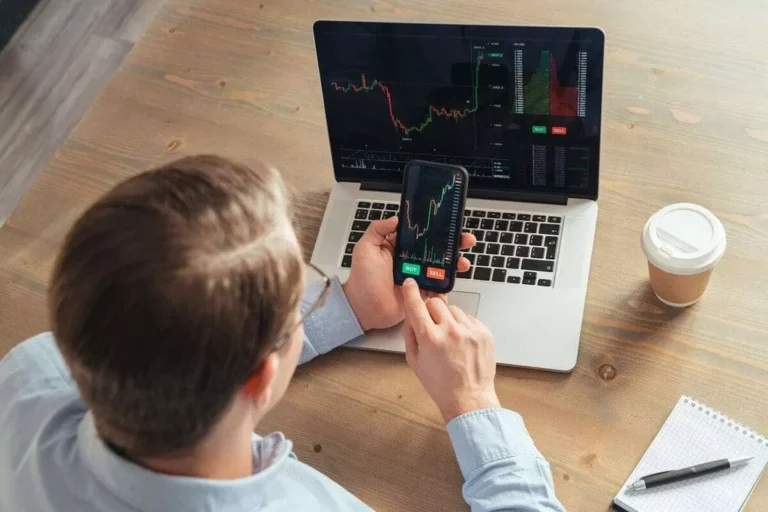Content
Popular Crypto Exchanges are Binance, Coinbase Exchange, Kraken and KuCoin. In fact, most cryptocurrency owners use multiple wallets to ensure maximum security for https://www.xcritical.com/ storing their various cryptocurrencies. Instead, your wallet is a storage location for your addresses, public and private keys.
Bitcoin wallet & more: Cryptocurrencies and their own wallets
No major effect if you lose your private keys or recovery phrase, easy to regain access again via our support team. Kolade is a financial and cryptocurrency writer with years of experience developing well-researched, SEO-friendly articles difference between crypto wallet and exchange that are engaging, relatable, and compelling. Investing in numerous cryptocurrencies necessitates the use of multiple accounts and two-factor verification. Some exchanges may have restrictions based on your location due to regulatory requirements. Ensure that the exchange you choose operates in your country and complies with local regulations. Additionally, check if the exchange supports your preferred fiat currency for deposits and withdrawals.
- While both serve vital functions, they have distinct purposes and features.
- An exchange platform facilitates users’ buying, selling, and trading cryptocurrencies.
- Without keeping actual funds, it guarantees that people have control over something they own.
- Instead of writing it down in a notes app, a private key is an alphanumeric code that must be remembered by hand.
- In this blog post, we will explore the key differences between a crypto exchange and a crypto wallet, helping you make informed decisions when it comes to managing your cryptocurrency investments.
- The bitcoin domain was registered in 2008, but the first transaction took place in 2009.
Lets explain these definitions using Bitcoin:
It’s important to read Proof of work the details on your chosen trading platform to ensure you understand the level at which price movements will be measured before you place a trade. It is the term used to describe the initial deposit you put up to open and maintain a leveraged position. When you are trading cryptocurrencies on margin, remember that your margin requirement will change depending on your broker, and how large your trade size is. However, there are also drawbacks, such as entrusting your private keys to a third-party and hackers gaining access to your “user ID” and password. There are rules in place to protect traders and investors; to help keep the playing field fair.

What Is Best Security Wallet for Crypto?
Ahead, we’ll explore the differences and similarities between crypto wallets and exchanges and talk about which solution may be right for your crypto strategy. On the other hand, users effectively entrust the exchange with their money when they utilise a centralised exchange. The exchange has authority over such assets since it is in possession of the private keys to each user’s platform wallet. Centralised exchanges, on the other hand, may have security flaws because they store and handle users’ private keys. Exchanges may attract hackers due to their centralised storage of several users’ valuables.

Private keys are necessary for signing and verifying transactions on the blockchain, and they allow users to securely access and manage their digital assets. Deciding where to store crypto assets is critical for any investor, as well as balancing accessibility and security. So, it’s essential to grasp how crypto wallets and exchanges differ in the crypto world. Wallets are best suited for secure, long-term storage of digital assets, giving users full control over their private keys.
The more steps it takes for you to access your cryptocurrency keys, the harder it is for a criminal to access them. It also ensures that someone you have entrusted with your keys doesn’t lose them or deny you access to them. Sending and receiving cryptocurrency is very easy using these applications.
As you see from the schemes, Scenario 2 (Non-custodial wallet) appears to be more beneficial than Scenario 1 (Custodial exchange) in terms of speed. Owing to the excessive volatility of the cryptocurrency market, the popularity of various exchange platforms is insane. Trading on the exchange can be truly exciting and even profitable but, unfortunately, when it comes to the security aspect, the situation doesn’t seem so bright.
Leveraged trading therefore makes it extremely important to learn how to manage your risk. A blockchain file is always stored on multiple computers across a network – rather than in a single location – and is usually readable by everyone within the network. This makes it both transparent and very difficult to alter, with no one weak point vulnerable to hacks, or human or software error. Exchanges bring their own steep learning curve as you’ll need to get to grips with the technology involved and learn how to make sense of the data. Many exchanges also have limits on how much you can deposit, while accounts can be very expensive to maintain.
With a simple tweet or statement, he can send crypto prices soaring or plummeting. Musk’s interests and investments in cryptocurrency have made headlines and continue to be a popular topic in crypto news. For those looking to understand which cryptocurrencies Elon Musk supports and why, this article explores his influence, the crypto currency he backs, and what this means for the crypto market today. As the cryptocurrency market continues to evolve, investors are constantly seeking the next big opportunity. We’ll discuss their use cases, recent news, and altcoin prices, helping you make an informed decision about which altcoin pay attention to. As we already mentioned, the custodial storages of major exchanges work like traditional bank vaults.
In the future, they could revolutionise how we think about and manage finance through integration with DeFi ecosystems and support for multi-signature transactions. These technologies increase security while offering new opportunities for generating returns or participating in governance systems. Further innovations could include seamless interfaces between different blockchain networks and even greater automation through smart contracts.
A software wallet installed on your computer or smartphone combines security with easy access for daily use. Wallets safeguard your digital assets, while exchanges facilitate trading. This comparison outlines their fundamental differences, focusing on security, control, and functionality. When comparing wallets to exchanges, there is a noticeable difference in the amount of authority users have over their money. A person has complete control over their digital assets when using a crypto wallet, especially one that is non-custodial.
Moreover, there’s no chance of losing your private keys and, thereby, access to the money. Account hack can in some cases be inevitable, so you should always stay woke to it. You can better protect your cryptocurrencies if you do your mitigation with this concept in mind. Ideally, you should be able to run numerous cryptocurrency accounts at the same time, which will secure part of your digital assets if one of your accounts is compromised. If you want to purchase and sell cryptocurrencies like Bitcoin, Ether, or Dogecoin at a set price, you need to use a cryptocurrency exchange. In exchange, you can convert fiat currency into cryptocurrency and vice versa to transfer money to and from your bank account.
It is what others use to send funds to your wallet—think of it as your bank account number. Choosing between a crypto wallet and exchange is one of the main decisions any trader will need to take. Both allow you to store crypto but it is really up to you to decide which will benefit you in your trading journey in the long run. On the other hand, when your digital funds are kept in an exchange account, sometimes referred to as an exchange wallet, you hand out part of that overall control over to the platform. The safest crypto wallet has no connection on its own or to a device with internet access. It also should not deny you access to your crypto because a custodian has financial issues.
Well, while crypto exchanges facilitate buying, selling, and trading digital currency like Bitcoin, wallets serve as a personal bank for secure storage of your crypto holdings. An exchange wallet, on the other hand, is a crypto wallet provided by a cryptocurrency exchange that allows users to store their crypto assets on the exchange. However, it’s important to note that storing digital assets on an exchange wallet can be risky, as the exchange is vulnerable to hacking and security breaches. If an exchange is hacked or goes bankrupt, users could lose their crypto holdings. Another key difference between exchanges and wallets is the level of control users have over their funds. With a crypto wallet, users have full control over their private keys and, therefore, their digital assets.
Cryptocurrency trading is the act of speculating on cryptocurrency price movements via a CFD trading account, or buying and selling the underlying coins via an exchange. A desktop wallet is a program for your computer that store your private keys on your computer’s hard drive. The wallets will be more secure than mobile and web wallets since you don’t rely on a third party to store your precious private keys. This is a pronounced point of difference between stock and cryptocurrency exchanges.



